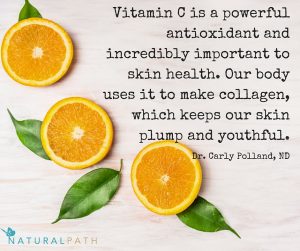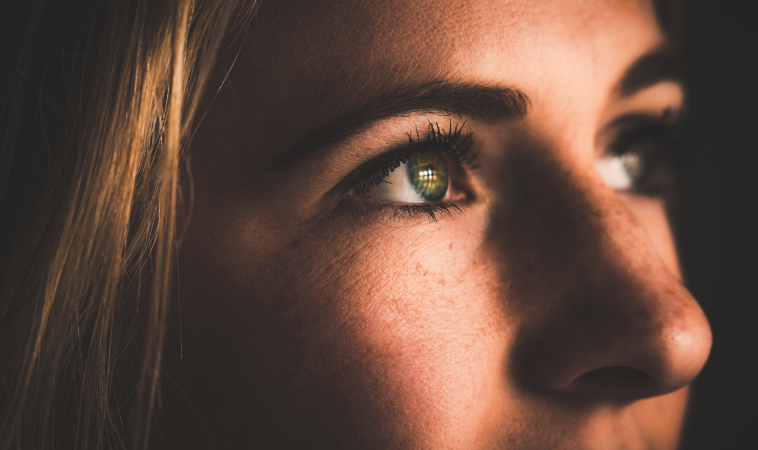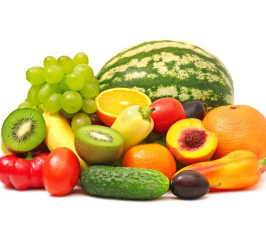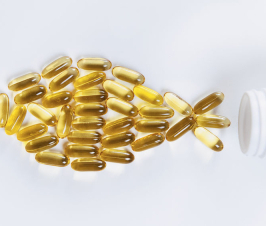Do You Know About Photoaging?
Are you noticing more wrinkles, loss of skin tone, and change in texture of your skin? Well, listen up, that’s called Photoaging. Photoaging is a particular kind of aging caused by the sun damage. And photoaging is much worse than chronological aging when it comes to the appearance of our skin. Thankfully, we have many natural therapies that can correct the photodamage and restore our skin.
Stress, hormones, and time also contribute to skin aging. So how do we know that we are experiencing photoaging? If you have 2 or more of the following symptoms, you are most likely experiencing photoaging:
- Wrinkles
- Changes in skin pigmentation (hyperpigmentation or hypopigmentation)
- Rough skin
- Loss of skin tone
- Dryness
- Precancerous lesion
- Deep wrinkles
- Skin cancer
- Melanoma
The best treatment for photoaging is to avoid UV radiation. Here are some tips to protect your skin from the damages of the sun:
 Avoiding the sun from 10 am to 2 pm
Avoiding the sun from 10 am to 2 pm- Wearing mineral sunscreen and reapplying it often
- Avoiding direct sunlight when outside
- Wearing UV protective clothing and hats
- Wearing long sleeved shirts and pants to cover skin
And while that is all well and good, it doesn’t help those of us with photoaged skin. And the truth is, we all have some degree of photoaging. So how can we reverse the damage to our skin? Many of us have tried face cream after face cream to improve our skin with minimal results. And while there are many topical therapies to prevent and reverse photoaging, our main focus should be on feeding our skin cells from inside our body.
So this is how photoaging works. When UV light hits our skin, it creates free radicals. Our body has antioxidant systems designed to protect our cells and DNA from free radical damage. However, UV light creates more free radicals than our body can handle. The free radicals quickly deplete our supply of antioxidants, which allows them to damage our DNA, breakdown collagen, and shutdown the production of new collagen. This leads to wrinkle formation, loss of skin elasticity, and uneven skin tone1. Long story short, it leaves us looking older. So to stop our skin from aging from the sun, we need to make sure our skin has enough antioxidants and help it regenerate collagen.
Vitamin C
Vitamin C is an essential antioxidant in our body. It is also incredibly important to skin health because our body requires vitamin C to make collagen. And collagen is what maintains the tone and elasticity of our skin. It keeps our skin plump and youthful. Vitamin C is one of the antioxidants that UV radiation rapidly depletes in our skin cells. Without vitamin C, our skin cells will not be able to make more collagen. Supplementing with 500 mg of vitamin C a day can help maintain the level of vitamin C in our skin cells, even when exposed to UV radiation2. The healthy levels of vitamin C will then increase collagen production, protect against UV damage, and correct pigmentation3.
Beta-Carotene
Supplementing with beta-carotene may not only prevent photoaging, but it can also repair existing sun damage. A study in healthy women showed that supplementing with 30 mg of beta-carotene a day improved facial wrinkles, increased skin elasticity, and restored collagen levels4. You can get beta- carotene from a variety of food sources like carrots, cantaloupe, broccoli, green leafy vegetables, mango, apricot, peaches, red peppers, pink grapefruit, pumpkin, winter squash, sweet potato, and tomatoes.
French Pine Bark
French Pine Bark is rich in bioflavonoids that have antioxidant and anti-inflammatory properties. It is fast becoming a popular ingredient in cosmetics, but oral supplementation can also improve the skin. A study investigated oral supplementation with pine bark extract in women with mild to moderate photoaging. The women taking 100 mg of pine bark extract daily experienced improvements in their skin, particularly a lightening of their age spots caused by photodamage5.
CoQ10
CoQ10 can be very rejuvenating to the skin. It protects the collagen in our skin from being destroyed by UV radiation, which means fewer wrinkles and better skin tone3.
Fish Oil
Fatty acids are essential to healthy skin. The moisture barrier in our skin, called the stratum corneum, is primarily made up of compounds derived from fatty acids6. So if we want moisturized and healthy skin, we need healthy fatty acids, particularly eicasopentaenoic acid (EPA), which is commonly found in fish oil. One study found that supplementing with 4 grams of EPA a day made people less susceptible to getting sunburns and it protected the DNA in our skin cells from UV damage. Since DNA damage can lead to skin cancer, EPA may be able to reduce our risk of skin cancer7.
Collagen
Collagen supplementation isn’t just great for our digestion and joints. It is also great for our skin. And it may just be what we need to help with photoaging. In a mouse study, oral collagen supplementation prevented wrinkle formation, protected skin elasticity and hydration, and reduced inflammation and redness caused by UV radiation8.
For best results, use multiple antioxidants to rejuvenate your skin. Combined antioxidants have a synergistic effect when it comes to protecting your skin from photoaging3. And the best way to get combination antioxidant therapy is to eat your fruits and vegetables. Aim for 7-9 servings of vegetables and fruit a day, focusing on the veggies. Eat a rainbow of color to get the full spectrum of antioxidants. And remember to stay hydrated to improve the delivery of antioxidants, vitamins, and nutrients to your skin. Get a minimum of 64 ounces of water a day.
When it comes to addressing our skin from the inside, it may take several months to see results. So hang in there. In the meantime, be sure you are protecting your skin from further photoaging.
Photo by Eric Ward on Unsplash
 Dr. Carly Polland is a Naturopathic Doctor who is passionate about teaching people how to transform their health to live a life full of strength, energy, and vitality. She combines modern science and ancient natural wisdom to help people overcome chronic disease and reclaim vibrant health. She specializes in autoimmune disease, digestive disorders, women’s health, and mental health. To learn about her private practice, visit www.bioadaptivemedicine.com.
Dr. Carly Polland is a Naturopathic Doctor who is passionate about teaching people how to transform their health to live a life full of strength, energy, and vitality. She combines modern science and ancient natural wisdom to help people overcome chronic disease and reclaim vibrant health. She specializes in autoimmune disease, digestive disorders, women’s health, and mental health. To learn about her private practice, visit www.bioadaptivemedicine.com.
References:
- Sander, C. S., Chang, H., Salzmann, S., Müller, C. S., Ekanayake-Mudiyanselage, S., Elsner, P., & Thiele, J. J. (2002). Photoaging is Associated with Protein Oxidation in Human Skin In Vivo. Journal of Investigative Dermatology, 118(4), 618-625. doi:10.1046/j.1523-1747.2002.01708.x
- Mcardle, F., Rhodes, L., Parslew, R., Jack, C., Friedmann, P., & Jackson, M. (2002). UVR-induced oxidative stress in human skin in vivo: Effects of oral vitamin C supplementation. Free Radical Biology and Medicine, 33(10), 1355-1362. doi:10.1016/s0891-5849(02)01042-0
- Pandel, R., Poljšak, B., Godic, A., & Dahmane, R. (2013). Skin Photoaging and the Role of Antioxidants in Its Prevention. ISRN Dermatology, 2013, 1-11. doi:10.1155/2013/930164
- Cho, S., Lee, D. H., Won, C., Kim, S. M., Lee, S., Lee, M., & Chung, J. H. (2010). Differential Effects of Low-Dose and High-Dose Beta-Carotene Supplementation on the Signs of Photoaging and Type I Procollagen Gene Expression in Human Skin in vivo. Dermatology, 221(2), 160-171. doi:10.1159/000305548
- Furumura, M., S., K., T., & N. (2012). Oral administration of French maritime pine bark extract (Flavangenol®) improves clinical symptoms in photoaged facial skin. CIA Clinical Interventions in Aging, 275. doi:10.2147/cia.s33165
- Jadoon, S., Karim, S., Asad, M. H., Akram, M. R., Khan, A. K., Malik, A., . . . Murtaza, G. (2015). Anti-Aging Potential of Phytoextract Loaded-Pharmaceutical Creams for Human Skin Cell Longetivity. Oxidative Medicine and Cellular Longevity, 2015, 1-17. doi:10.1155/2015/709628
- Rhodes, L. E. (2003). Effect of eicosapentaenoic acid, an omega-3 polyunsaturated fatty acid, on UVR-related cancer risk in humans. An assessment of early genotoxic markers. Carcinogenesis, 24(5), 919-925. doi:10.1093/carcin/bgg038
- Pyun, H., Kim, M., Park, J., Sakai, Y., Numata, N., Shin, J., . . . Hwang, J. (2012). Effects of Collagen Tripeptide Supplement on Photoaging and Epidermal Skin Barrier in UVB-exposed Hairless Mice. Preventive Nutrition and Food Science JFN, 17(4), 245-253. doi:10.3746/pnf.2012.17.4.245

















